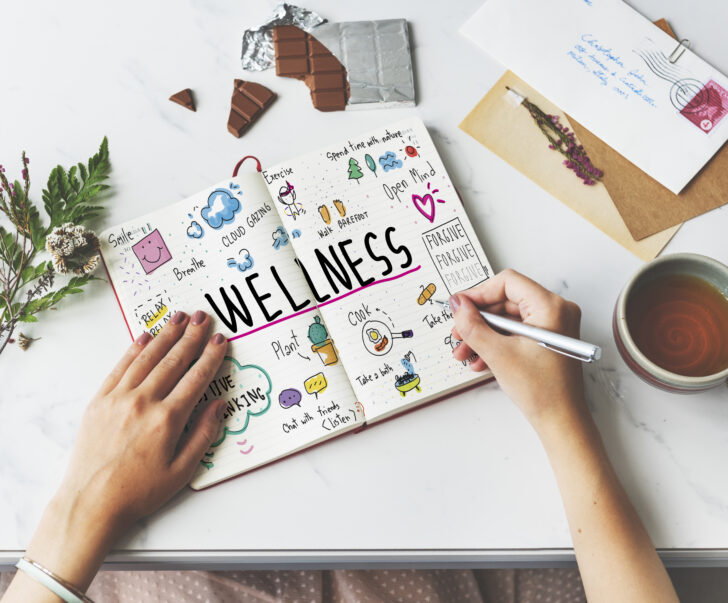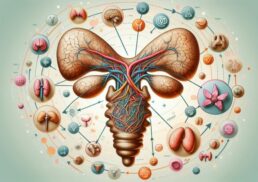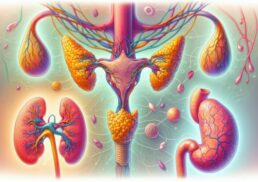Stress is an inevitable aspect of life; however, understanding its effects on both the body and mind is essential for maintaining overall well-being. This article examines the consequences of stress and presents a variety of natural remedies to effectively manage it.
The discussion encompasses a range of approaches, including the use of herbs, relaxation techniques, and holistic practices such as yoga and acupuncture, all of which contribute to promoting resilience. Furthermore, we will explore lifestyle changes that create a supportive environment, enabling individuals to navigate stress with confidence and ease.

Table of Contents
The Impact of Stress on the Body and Mind
Stress is a prevalent issue that impacts both physical and mental health, resulting in a variety of negative consequences, including chronic anxiety and reduced overall well-being.
Gaining an understanding of the physiological and psychological effects of stress is essential for the development of effective coping strategies. Research conducted by esteemed organizations such as the Mayo Clinic and the American Psychological Association underscores the ways in which stress affects various bodily functions and contributes to anxiety disorders.
This highlights the need for interventions, including physical exercise, relaxation techniques, and mindfulness meditation, to alleviate these adverse effects.
Understanding the Effects of Stress
Understanding the effects of stress necessitates an acknowledgment of its significant impact on both physical and mental health, which can lead to anxiety and various health complications.
When individuals are exposed to stress, the body initiates a series of physiological responses that can markedly alter the functioning of the nervous system. This response typically triggers the release of stress hormones such as cortisol and adrenaline, which prepare the body for a ‘fight or flight’ reaction. Prolonged exposure to stress can compromise the immune response, rendering individuals more susceptible to illness.
The established connection between chronic stress and an increased vulnerability to mental health disorders is well-documented. These stressors can result in heightened anxiety, adversely affecting daily functioning.
Fortunately, interventions such as cognitive behavioral therapy and relaxation techniques—including deep breathing and mindfulness practices—offer effective strategies for managing stress. By learning to recognize and address their stress responses, individuals can mitigate the negative effects on both their mental and physical well-being. For more information on natural methods to alleviate stress, you can read about how to manage stress naturally.
Natural Remedies for Managing Stress
Natural remedies for managing stress encompass a range of approaches that emphasize holistic healing. These may include herbal supplements, relaxation exercises, and the application of aromatherapy oils or the consumption of herbal teas for stress relief.
Research has indicated that compounds present in CBD oil, chamomile, lavender, valerian, and lemon balm can effectively promote relaxation and alleviate anxiety. Consequently, these remedies represent valuable options for individuals seeking natural alternatives to conventional stress management strategies.
Herbs and Supplements for Stress Relief
Herbal supplements, including chamomile, lavender, valerian, lemon balm, kava, and passion flower, are widely recognized for their stress-relieving properties, providing natural alternatives to pharmaceutical treatments.
These botanicals have attracted considerable attention due to their distinct mechanisms of action within the body, often facilitating relaxation and reducing anxiety levels. For example, chamomile contains apigenin, a compound that binds to receptors in the brain to induce calming effects, while lavender is known to impact neurotransmitter pathways, thereby enhancing mood and sleep quality.
Incorporating these herbs into one’s daily regimen can be relatively simple, as they can be consumed in the form of teas, capsules, or tinctures. It is essential to adhere to recommended dosages to ensure safety and to be mindful of potential side effects, such as drowsiness or gastrointestinal discomfort.
By gaining a thorough understanding of how to effectively integrate these herbs into their routines, individuals may experience substantial relief from everyday stressors.
Relaxation Techniques
Relaxation techniques, such as mindfulness meditation, deep breathing exercises, and various forms of meditation, are crucial practices for alleviating stress and enhancing mental well-being.
Incorporating these techniques into one’s daily routine can be transformative, providing individuals with a pathway to a calmer mind and a more balanced emotional state. Mindfulness meditation, in particular, enables practitioners to cultivate a heightened awareness of the present moment, thereby reducing anxiety and fostering emotional resilience.
Deep breathing exercises complement this practice by activating the body’s relaxation response, which can effectively diminish feelings of tension. By dedicating just a few minutes each day to these activities, individuals can develop a sustainable habit that not only enhances focus but also improves overall quality of life, making daily challenges more manageable and less overwhelming.
Holistic Approaches to Stress Management
Holistic approaches to stress management encompass a diverse array of practices aimed at addressing the mind, body, and spirit.
These practices include:
- yoga
- meditation
- acupuncture
- massage therapy
Such methods promote self-care activities and foster supportive companionship, providing individuals with various avenues to alleviate stress and enhance overall well-being. For more information, you can check out How to Manage Stress Naturally: Holistic Remedies That Work.
Yoga and Meditation
Yoga and meditation serve as effective methods for achieving stress relief through a combination of physical exercise, mindfulness meditation, and relaxation techniques.
These practices not only enhance physical well-being but also promote a profound sense of inner peace and tranquility. Engaging in yoga allows individuals to explore various styles, such as Hatha for gentle movement or Ashtanga for a more vigorous flow, each of which provides unique benefits.
Simultaneously, meditation techniques, including mindfulness and loving-kindness, enable practitioners to cultivate awareness and compassion, both of which are essential for improving emotional health.
As individuals incorporate a regular routine of these practices, they frequently observe considerable improvements in mental clarity, increased focus, and a marked decrease in anxiety levels, ultimately leading to a more balanced and fulfilling life.
Acupuncture and Massage Therapy
Acupuncture and massage therapy are recognized therapeutic interventions that can significantly assist in stress management, promoting relaxation and overall well-being.
These techniques operate by targeting specific points within the body to alleviate tension and enhance the flow of energy, commonly referred to as ‘qi.’ In acupuncture, fine needles are strategically inserted into these points to stimulate the nervous system, which may result in the release of endorphins, the body’s natural analgesics.
Conversely, massage therapy involves the manipulation of muscles and soft tissues to decrease muscle tension and improve circulation. Research has indicated that regular sessions of either treatment can lead to a significant reduction in anxiety and stress levels. For more information on natural stress management techniques, you can explore How to Manage Stress Naturally: Holistic Remedies That Work.
Clinical studies demonstrate that patients receiving acupuncture or massage report improved sleep patterns and reduced cortisol levels, underscoring their effectiveness as holistic approaches to stress relief.
Lifestyle Changes for Reducing Stress
Lifestyle changes are essential in mitigating stress, highlighting the significance of physical exercise, balanced nutrition, effective time management, and the cultivation of supportive relationships to enhance overall mental health.
Healthy Eating and Exercise
Healthy eating and regular physical exercise are essential components for stress relief, significantly influencing magnesium levels and overall mental health. For more insights, check out this guide on How to Manage Stress Naturally: Holistic Remedies That Work.
When an individual prioritizes a balanced diet that is rich in whole foods—such as leafy greens, nuts, and lean proteins—they not only support their physical vitality but also enhance their emotional resilience. Engaging in regular physical activities, such as yoga or brisk walking, has been shown to reduce cortisol levels, a hormone that can exacerbate feelings of anxiety.
By integrating these nutritional choices with exercise modalities that promote mindfulness and well-being, individuals can create a synergistic effect that fosters both mental clarity and emotional stability. It is crucial to acknowledge the interplay between nutrition and physical activity, as it plays a significant role in establishing a more robust mental health framework.
Creating a Supportive Environment
Creating a supportive environment is essential for effective stress management, as companionship and participation in self-care activities can lead to considerable stress relief.
This nurturing atmosphere promotes open communication, enabling friends and family members to share their feelings and challenges. Encouraging individuals to express themselves within their social circles not only strengthens relationships but also cultivates a sense of belonging, which is vital for overall well-being.
Incorporating community support through local organizations or group activities can provide a greater sense of purpose and connection, helping individuals feel less isolated in their struggles. For more insights, check out this article on How to Manage Stress Naturally: Holistic Remedies That Work.
Furthermore, prioritizing self-care practices—such as mindfulness, exercise, or creative hobbies—can significantly enhance resilience, ultimately contributing to a healthier emotional landscape.









